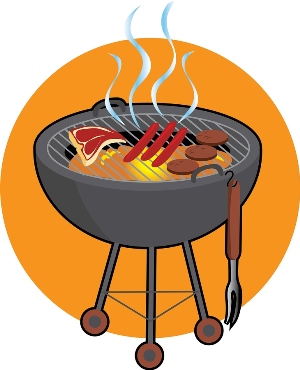 While shelter from cold weather is something often emphasized in the construction of rabbit hutches and so forth, how to handle hot weather is sometimes overlooked.
While shelter from cold weather is something often emphasized in the construction of rabbit hutches and so forth, how to handle hot weather is sometimes overlooked.
Look to rabbit behavior in the wild for clues – rabbit warrens are in the dark, cool underground and rabbits come out to feed in the early morning and at dusk.
In the wild, rabbits avoid being out in the bright, hot, afternoon sunshine. So domestic rabbits aren’t good at handling hot weather, either. Here are some tips for keeping your rabbit safe and healthy during the hot summer months:
1 – Shade
If your rabbit is outside, make sure it has access to shade. Direct sunlight can kill a rabbit quickly, sources warn. This is because excessive heat may cause your rabbit’s brain to swell.
If your shade comes from trees, make sure there is a shaded area at all times of the day. Shade in the morning can turn to direct sunlight in the afternoon, and vice versa.
2 – Air Movement
If possible, set up a fan to blow into and through your rabbit’s hutch. A misting fan may help even more.
3 – Ice
To allow your rabbit to cool off, try freezing some plastic bottles full of water (caps on). Then wire the bottles lengthwise along the outside bottom of one side of the cage. Your rabbit can lean up against these and cool off.
Consider adding ice cubes to your rabbit’s water bottle, too.
4 – Hot Bunnies
If, despite your precautions, your rabbit gets overheated, what should you do? First, here are the signs of overheating in rabbits:
- A very wet mouth and muzzle
- Lethargy
- Lying sprawled out at the bottom of the hutch or cage
- Panting and/or heavy breathing
- Convulsions (only in extreme cases)
Your rabbit may also dip its ears into its water bowl (if you have one) to try to cool itself. The ears are the rabbit’s primary means of cooling off, sources point out; this is why a hot rabbit will sometimes try to wet its ears.
If you see these symptoms in your rabbit, get your rabbit out of the heat immediately. Wet it with cool water, such as spraying gently with a hose or dipping your bunny in the sink. Try to get the rabbit thoroughly wet and cooled.
If you can get your bunny inside into air conditioning, all the better. Then a visit to the vet is a good idea to help your rabbit can recover from the trauma of overheating.
5 – Cold Treats
Giving your rabbit cold, juicy vegetables and fruits like carrots, apples, and lettuce may help, too. Try to refrigerate fresh rabbit treats before giving them to your bunny on a hot day.










